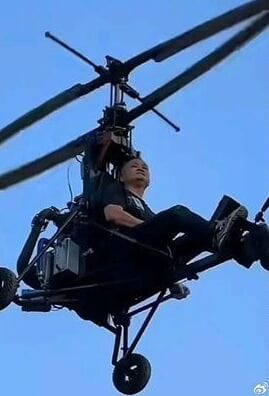Legal Case of Alleged Rape and Subsequent Appeal
The appeal in Wei Qiang's alleged rape case highlights legal complexities, evidence disputes, and fierce public debate over justice and minor protection.
Background of the Case
The legal drama surrounding Wei Qiang began when he was initially sentenced to four years in prison for allegedly raping a 16-year-old girl. According to the girl's account, she cried out and pushed Wei Qiang away, after which he ceased his actions. The incident was reported to police ten days later. Wei Qiang vehemently denied the allegations, claiming he never even unbuttoned his pants. After an intense appellate process, his sentence was reduced to two years and six months for attempted rape—a verdict that sparked a whirlwind of emotions and debate.
The Family’s Perspective and Evidence
For Wei Qiang and his family, this was no simple matter of justice served. His wife revealed chat logs that painted an unsettlingly different picture: the girl communicated excitement about their meeting, raising questions about possible ulterior motives. From the vantage point of a struggling factory worker, Wei Qiang felt ensnared in a “honey trap” that unjustly cost him his freedom.
"How can someone be branded a rapist without even completing the act?" his wife lamented, emphasizing the emotional devastation. Their efforts to collect witness testimonies and evidence aimed to challenge the integrity of the process and highlight the potential mishandling by authorities.
Public Debate and Legal Nuances
The case became a hot topic online, sharply dividing public opinion. Some sided with the girl, focusing on her status as a minor and interpreting Wei Qiang's actions as criminal, though the reduced sentence was even viewed as lenient by some. Others defended Wei Qiang, pointing to the chat logs that suggested the girl knowingly met him.
Legal experts weighed in, clarifying that the court’s recognition of an "attempt" meant Wei's withdrawal prevented a harsher penalty, but also that the protection of minors heavily influenced the original sentence. The exclusion of potentially coerced testimony in appeal was seen as a move toward fairer proceedings, though controversy about interrogation practices remained.
Broader Implications and Reflections
This case highlights the complex intersection of minor protection laws, evidentiary challenges, and the potential for miscarriage of justice. It also raises uncomfortable questions about meeting strangers online, the reliability of delayed reports, and the role that societal biases play in legal outcomes.
Wei Qiang’s ordeal underscores how vulnerable ordinary people can be when facing serious legal charges, especially if they struggle to present an effective defense. The public debate also calls for greater scrutiny of evidence collection protocols and more nuanced interpretations of protective laws to avoid unjust outcomes.
Conclusion
The Wei Qiang case remains a poignant example of how *justice is rarely straightforward*. It reveals the delicate balance courts must strike between protecting minors and ensuring fair trials. As his family continues to appeal, the case serves as a reminder of the powerful consequences legal battles have on personal lives and public trust in the justice system.
Ultimately, the story demands that we carefully examine not only the letter of the law but also its spirit—and the human stories behind every verdict. ⚖️📜




